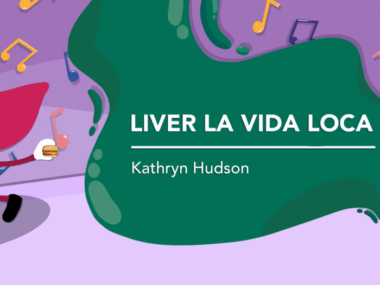FDA gives conditional approval to Wegovy for some liver patients
Study shows drug reduces liver fibrosis, inflammation
Written by |

The U.S. Food and Drug Administration (FDA) has conditionally approved Novo Nordisk’s Wegovy (semaglutide) to treat certain people with metabolic dysfunction-associated steatohepatitis (MASH), a serious form of fatty liver disease.
The approval covers the use of Wegovy — given once weekly by under-the-skin injection at a dose of 2.4 mg — for people with MASH who have moderate to advanced liver scarring (fibrosis) but who do not have cirrhosis (irreversible liver fibrosis). The therapy is indicated for use in combination with a reduced calorie diet and increased physical activity.
The FDA’s decision “marks a truly pivotal milestone and a significant step forward for the MASH community and those seeking new options,” Dave Moore, executive vice president of U.S. operations at Novo Nordisk, said in a company press release.
Accelerated approval allows a therapy to be brought to market based on early evidence that it will likely benefit patients. Full approval is dependent on additional clinical trial data confirming the therapy’s benefits. Novo Nordisk said confirmatory research is underway.
Wegovy is approved in the U.S. to help promote weight loss in people with certain weight-related conditions, and to help reduce risk of major cardiovascular events in people with heart disease who are overweight or obese. A semaglutide subcutaneous formulation called Ozempic and an oral formulation called Rybelsus are also cleared for use in the U.S. for treating type 2 diabetes.
A ‘turning point’ for liver disease treatment
“Wegovy is one of the most widely known and prescribed therapies for obesity and diabetes,” Grace L. Su, MD, president of the American Association for the Study of Liver Diseases, said in an association press release. “This new approval for MASH extends that influence to liver health” and “represents an exciting turning point in how we approach liver disease treatment,” Su said.
Similar applications have been submitted to regulatory agencies in Canada, the European Union, and Japan.
Metabolic dysfunction-associated steatotic liver disease (MASLD), formerly known as nonalcoholic fatty liver disease, is marked by an abnormal buildup of fat in the liver that is closely associated with metabolic conditions like diabetes, high blood pressure, and obesity.
MASH is a severe complication of MASLD where the buildup of liver fat starts to cause inflammation and fibrosis that can interfere with liver function. According to the FDA, about 6% of adults in the U.S. have MASH, and the rate is increasing.
“For far too long, this disease has remained unrecognized, undiagnosed, and often untreated, despite impacting so many people,” Moore said.
Wegovy is a glucagon-like peptide-1 (GLP-1) receptor agonist, meaning that it works by mimicking the activity of a signaling molecule, GLP-1, that normally helps regulate appetite and blood pressure.
The FDA’s decision — which made Wegovy the first and only therapy in its class to be approved for MASH — was based on data from the first part of the global Phase 3 ESSENCE clinical trial (NCT04822181). That study is testing the therapy against a placebo in more than 1,200 adults with MASH and moderate to advanced liver fibrosis.
Findings from 800 participants showed that, after about a year and a half, significantly more patients on Wegovy had a reduction of liver inflammation without fibrosis worsening (63% vs. 34%) or a liver fibrosis reduction without worsening of liver inflammation (37% vs. 22%). This meant that the trial met the main goals of its first part.
The percentage of patients who saw reductions in both liver fibrosis and inflammation also was higher among those in the Wegovy group (33% vs. 16%), meeting a secondary goal.
“If left untreated, MASH can lead to serious and potentially fatal outcomes,” said Arun Sanyal, MD, director of the Stravitz-Sanyal Institute for Liver Disease and Metabolic Health at Virginia Commonwealth University. “The clinical evidence seen in ESSENCE underscores the promise of this approach to treating adults with MASH with moderate to advanced liver fibrosis.”
The second part of the ESSENCE study aims to evaluate Wegovy’s effects on liver-related clinical events relative to the placebo after about 4.5 years. This part is expected to end in 2029.
According to the therapy’s label, the most commonly reported adverse events among MASH patients resembled those reported in people with other conditions. Most are related to the gastrointestinal system, but may also include headache, fatigue, dizziness, and common cold symptoms, as well as low blood sugar levels in people with type 2 diabetes.
Wegovy’s approval for MASH “gives patients and providers real hope while underscoring the need for continued innovation and equitable access to liver care,” Su said.


